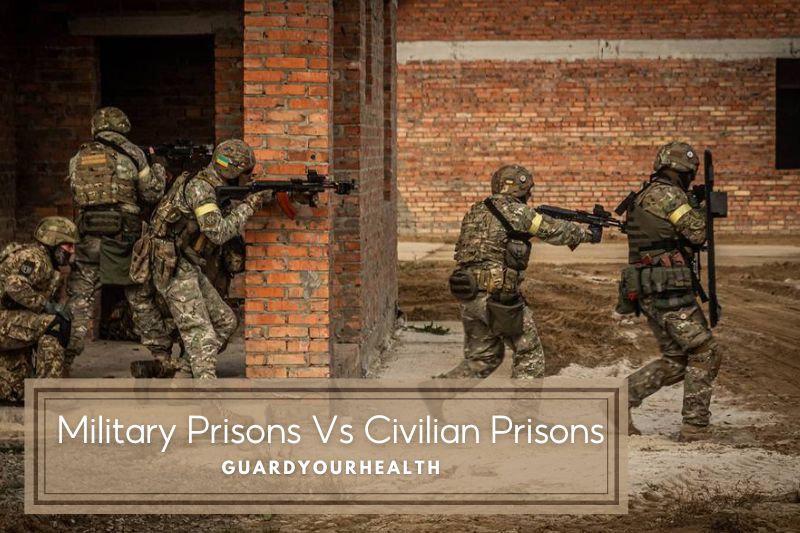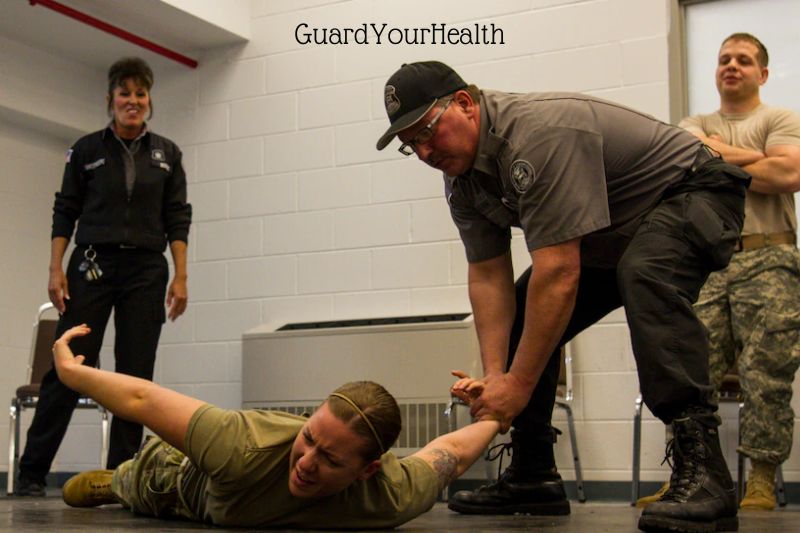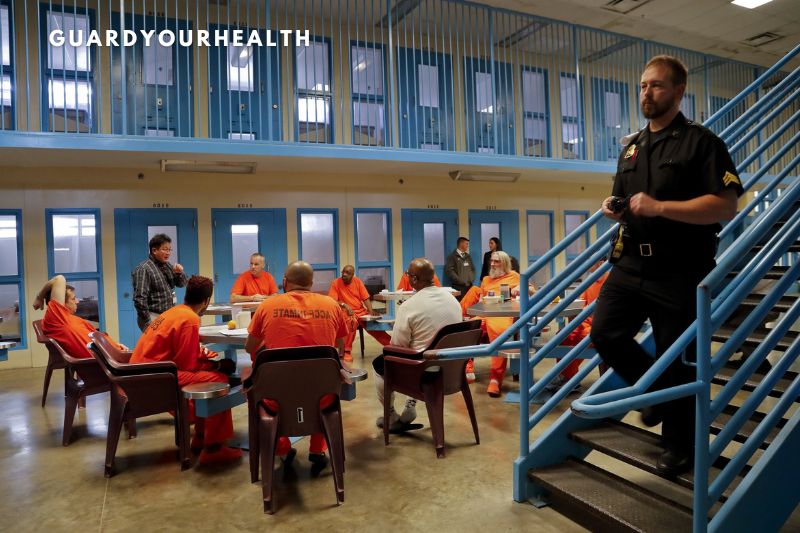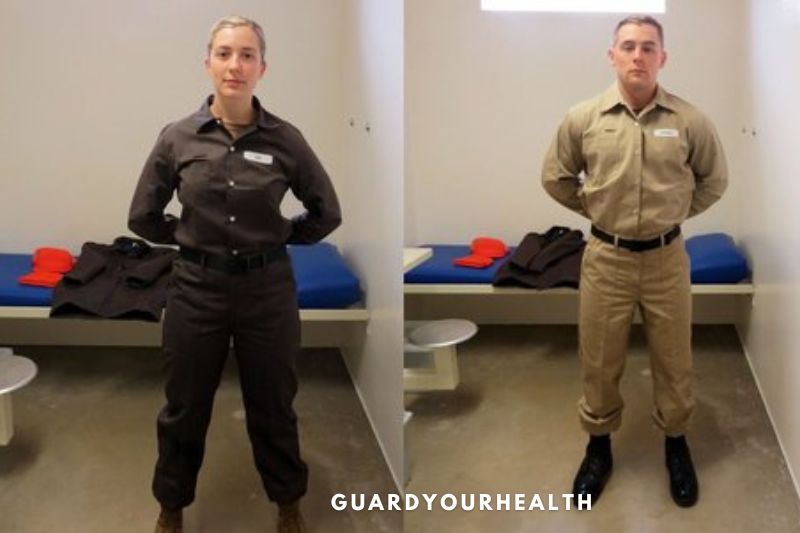Military prisons vs civilian prisons are both very different. Military prisons are designed for people convicted of breaking the UCMJ or Uniform Code of Military Justice. These prisoners are typically held in military prisons for one year or less.
Civilian prisons, on the other hand, are usually run by state or local governments. They are designed for people convicted of crimes, not under the UCMJ.
Military Prison vs Civilian Prison
There are reasons for both a military and a civilian jail system. They each have their personality and working style.
The facilities, guards, salutes, everyday life, fights, treatment, and isolation are only a few of the visible distinctions. Continue reading to learn more.
1. Facilities
The facilities, or more precisely, the status of the facilities, are one of the most visible disparities between military and civilian jails.
The latter is often filthy, damaged, and dilapidated. This is because most convicts are unconcerned about cleanliness and perform the bare minimum. After all, they don’t get paid to clean the facilities or vice versa.
On the other hand, military jails have a rigid rule that requires convicts to keep their facilities clean. The inmates are responsible for the care and repair of their quarters. If a place becomes unkempt and unsanitary, the convicts will be given a mouthful. This is hardly unexpected considering the military’s emphasis on discipline and rejecting disarray.
As a result, if you compare two images of Leavenworth military prison facilities and civilian jail facilities side by side, you may be able to identify which is which just by looking at the status of the areas.
2. Guards
Guards in military prisons are often members of the local security forces or military police. They are uniformed staff with the same responsibilities and expectations as the convicts in the cells.
Because it is their military expertise or duty to supervise and “take care” of military detainees, they want everything to run as smoothly as possible. Consequently, life in military jails is often trouble-free and smooth sailing.
Guards in civilian jails are not the same. Inmates report that there are typically two sorts of guards. The first finish their task well enough to get paid. These guards are known as “laid back” or “cool” guards since they hang around in the office and sip coffee.
The second is more of a remedial measure. They tend to be more violent and try to express or demonstrate their power over convicts. These are the guards that convicts will have to “put on a show” to remain on their “good side.”
3. Salutes
Salutes may seem to be required or at least prevalent in military prisons. Unfortunately, this is not the case. Inmate Leavenworth federal penitentiary inside, although members of the military, are not permitted to salute military leaders.
It may be considered a crime under the Uniform Code of Military Justice if they salute. This is because military officers must salute the person who is saluting them. It is, nonetheless, impolite for an officer to have to salute a criminal. As a result, saluting an officer is strictly prohibited.
Nonetheless, saluting is still practiced among detainees. Some military convicts will have a saluting system within the jail population, with a specific chain of command established from the lowest to the highest or “top” inmates.
As you may have predicted, saluting is not a “thing” in civilian jails. This is just not going to happen in civilian jails.
4. Daily Life
A normal day for military detainees starts at 0600. A roll call and a headcount have taken place. Inmates labor in the prison factory after shaving and dressing.
Dorm cleaning, chapel cleaning, kitchen detail, woodwork, grounds upkeep, and masonry are some examples. There is usually a strict framework or routine that convicts must adhere to. On weekends, it’s more about fun than work.
On the plus side, it is thought that food in military prisoners is superior to that in civilian jails. Inmates are not permitted to bring food back to their cells and will be checked to ensure this.
In contrast, most civilian jails have little to no control over the food served to inmates. It has also been observed that meat is often undercooked. As a result, ramen is said to be the “money” of the jails.
5. Fights
Contrary to popular belief, fighting does not occur regularly in military jails. If they do occur, they are promptly broken up and ignored.
Most inmates attempt to be “on their best behavior” to remain eligible for military brig service after their term. They also do not want to miss out on a good recovery program because of disagreements. There is still the odd fistfight.
Fistfights are not commonplace in military jails. However, difficult convicts are often separated from one another. As a result, fights are reduced. The facility may be locked down if there is nasty and intense fighting.
There are also several prisoner “gangs.” They do not, however, oppress one another, as is sometimes shown in films. Instead, most gangs adhere to the “mind your own gang’s business” philosophy.
6. Rehabs
Before exiting the prison system, a prisoner might be rehabilitated in various ways by the military. Because a dishonorable discharge will stigmatize these criminals, rehabilitation programs are critical for them to continue working in understaffed sectors or demand a specialized craft.
Prisoners can train in hospitality, carpentry, vehicle repair, and culinary arts via the military prison vs regular prison system. As a result, this aid convicts in “getting back on their feet” once they are released from jail. Most inmates value these rehabilitation programs.
Civilian jails are similar yet distinct. The Residential Drug Abuse Program allows selected convicts to be released nine months early.
Education is also provided for convicts who do not have a high school diploma or who do not yet speak English. College courses are also provided, although the inmates must pay for them. There are other instances when job training is available. However, this is dependent on the work requirements of the specific institution.
7. Solitary
If detainees disrespect the guards and break specific regulations, they will be placed in isolation or solitary confinement in both military and civilian institutions. This is often referred to as “the hole.” Prisoners are left alone to sleep, speak, and “amuse” themselves.
Solitary confinement in jail vs prison food may last up to 6 months. The length, however, is determined by what you have done. The “hole” in the military jail is an eight × 7-foot chamber with one toilet, sink, bed, and light. Food will be delivered to inmates via a tiny gap in the door. It will be tedious and repetitive, and it has the potential to drive a person nuts.
Before you go, consider viewing Fresh Out’s film on YouTube that addresses the question, “What is jail like for individuals who were in the military?”
FAQs
Are there military prisons in the US?
The USDB is the US Military’s sole maximum security jail, housing male military personnel convicted of breaches of the Uniform Code of Military Justice in a court-martial. Female convicts from all branches of the United States military are usually detained at the Naval Consolidated Brig at Miramar, California.
Why do soldiers go to Leavenworth?
Morris stated that in the 1870s, Army commanders intended the Leavenworth prison to dissuade desertion and to prepare troops for their expected return to military ranks after serving their terms.
Is it legal to execute soldiers?
In virtually all cases, summary execution is unconstitutional under military law since a military tribunal would be the competent judge required to decide guilt and pronounce a death sentence. There are exceptions to this norm, such as in crises and combat, when summary execution is permitted.
Does the Army still shoot deserters?
Under the Uniform Code of Military Justice, 15 offenses are punishable by death. However, several offenses, such as desertion or violating a senior commissioned officer’s orders, are only punishable by death during wartime.
Conclusion
The debate over whether military prisons or civilian prisons are better is ongoing. There are pros and cons to both types of facilities. Ultimately, deciding which type of prison is best depends on the individual situation. Thanks for reading.







